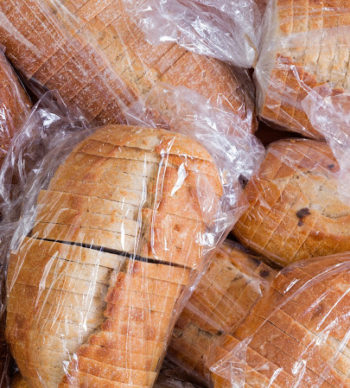Plastic food packaging has been in the public spotlight a lot in the last few years. With so many people making efforts to have less environmental impact with their purchasing, it can make business owners wonder what type of packaging is right for their products.
The truth is, plastic is still one of the best and most reliable types of food packaging – and is often recyclable. Here’s what you need to know about buying the best plastic food packaging for your products and the planet:
How to Know What Can Be Recycled
Consumers are often confused about which types of plastics can be recycled. Advertising the ability to recycle your packaging right on the label is a great way to help them out – and encourage them to purchase your products. How are you supposed to know this information, though?
The answer is a tiny number printed or stamped on nearly every plastic container produced today. These numbers are often visible inside the universally-accepted symbol for recycling – a small triangle of arrows. This indicates the type of plastic used and how easily it can be recycled.
What’s What?
• #1 – PETE – Polyethylene Terephthalate – This is the most common type of plastic for food packages such as water or soda bottles and is also the easiest to recycle.
• #2 – HDPE – High-Density Polyethylene – Another extremely common type of food packaging, and also very easy to recycle.
• #3 – PVC – Polyvinyl Chloride – Used in everything from plastic toys to household plumbing pipes, this is hard – and harder to recycle.
• #4 – LDPE – Low-Density Polyethylene – Used in bags and other thin food packaging applications, this can be recycled fairly easily as well.
• #5 – PP – Polypropylene – Used in everything from bottles to clothing, it is most frequently recycled into fibers for poly-based fabrics.
• #6 – PS – Polystyrene – This is also known as Styrofoam. It is difficult to recycle but can be cleaned and reused.
There is a seventh category, but this is typically comprised of a mixture of different resins. This can be difficult to recycle, so avoid it when you can.
Not sure how well your preferred resin will perform for your product packaging? Talk to an expert at your local plastic manufacturer. They can help you select a type of plastic to protect your food products – and keep your earth-conscious consumers happy!

